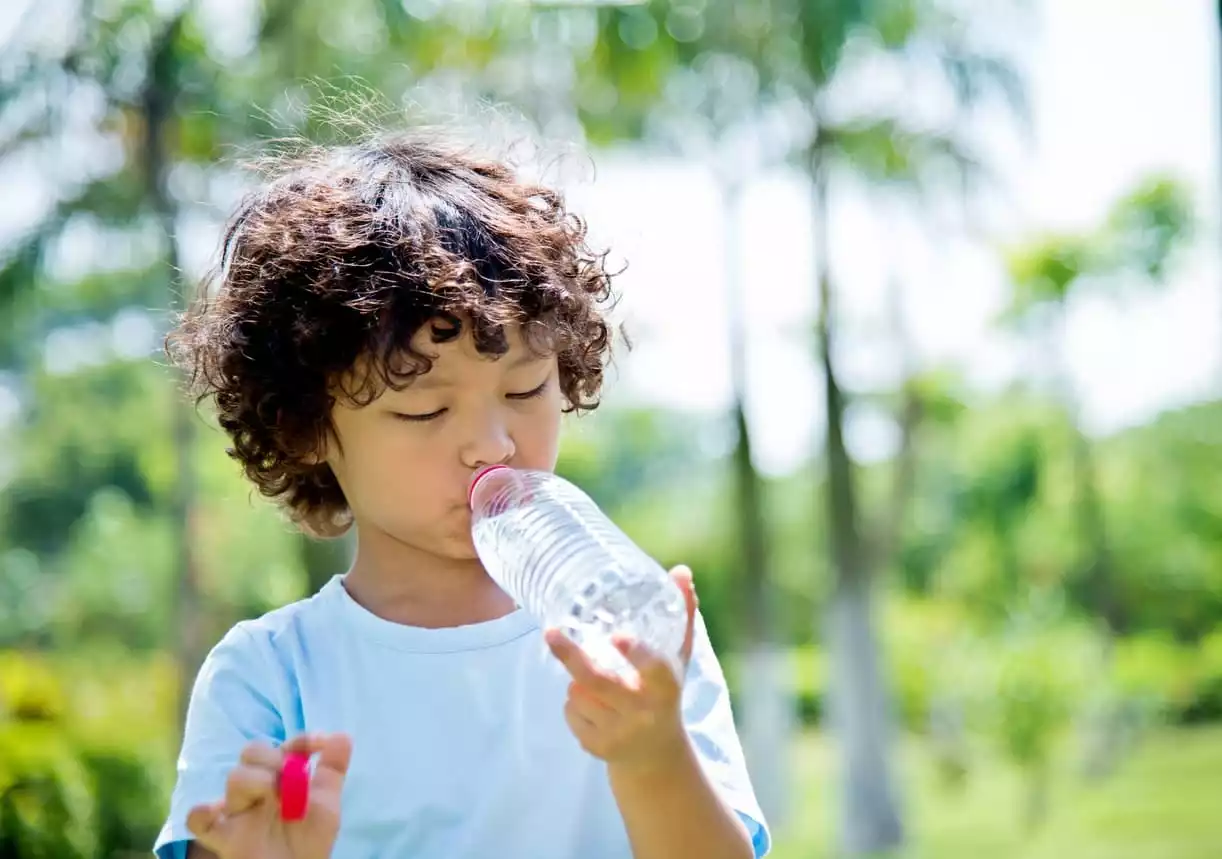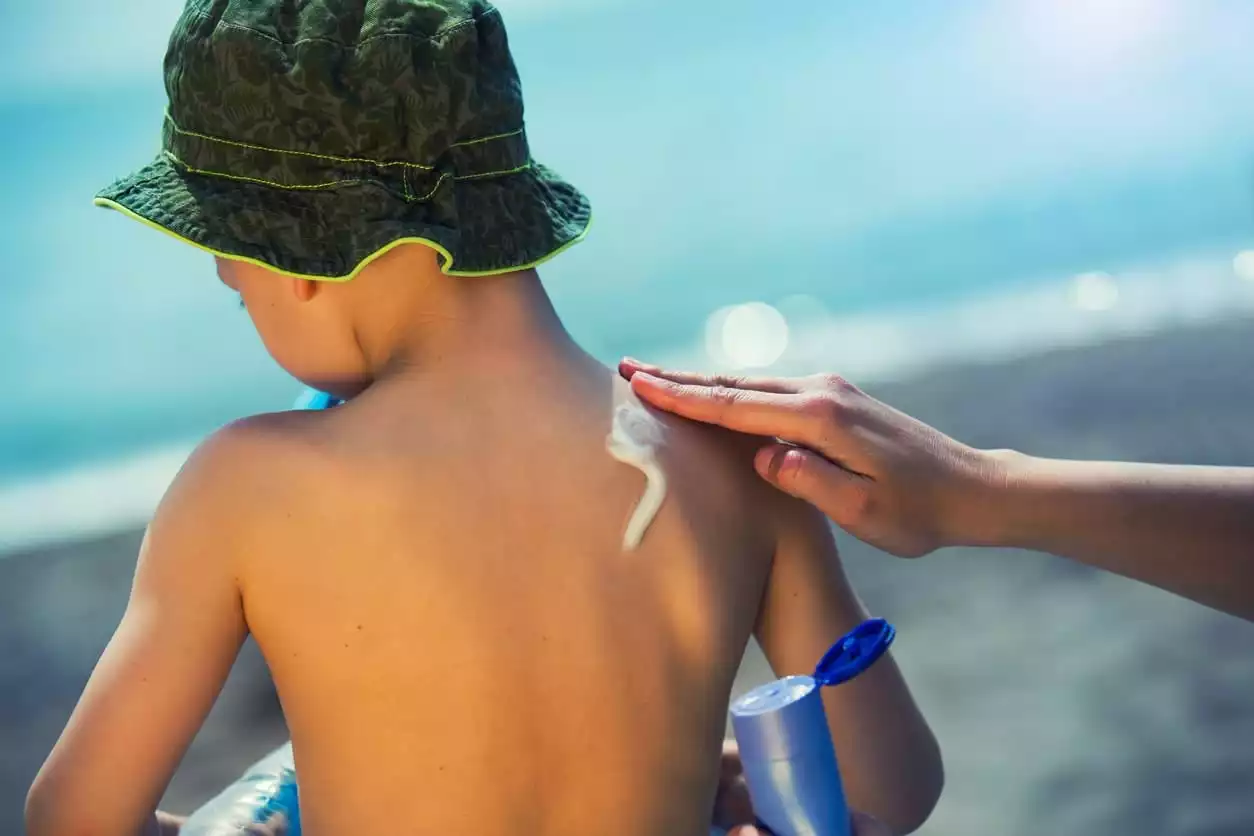
Summer is here, and the livin’ is easy – at least, that’s what Ella Fitzgerald told us some 50 years ago when she sang. Warmer weather brings fun, outdoor activities, and vacations, but it can also jeopardize your health if you don’t take the right precautions. From staying hydrated properly to moderating your exposure to UVA and UVB rays, these summer health tips from our experts will help you stay well and enjoy the summer season without experiencing illness or injury.
7 Simple Summer Health Tips to Avoid Ailments
It’s common thought that sickness and ailments only occur in winter time – but that is just a myth. You can get sick, injured, and suffer from ailments in the summer time, too.
Our experts have put together a list of 9 simple tips to keep you safe and healthy this summer:
- Stay hydrated
- Avoid the sun during certain times of the day
- But do still get outside
- Use the right sunscreen for your skin type
- Wear UV-protecting sunglasses
- Keep medications safe from heat
- Create and carry a first aid kit
- Know how to treat insect bites and stings
- Know your allergies and how to treat them
Some of these summer tips might seem like common sense, yet many people still fail to follow them!
Here’s how to stay healthy by following these summer health tips.
1. Stay Hydrated (Including Electrolytes!)
Higher temperatures and exposure to the sun can strip your body of hydration, meaning you should drink more water to compensate. But drinking water alone isn’t always enough.
Too much plain water can cause a condition called hyponatremia, where levels of essential nutrients like sodium and potassium are reduced.
This can produce cardiac symptoms and even death in extremes.
To stay properly hydrated, drink plenty of water – but don’t forget to nibble on the occasional snack and eat proper meals.
It’s also just fine to drink the occasional sports drink if you’re highly active; just be aware that some contain high amounts of sugar, which may be unhealthy in excess.
2. Avoid the Sun Between 10 and 4
The sun is stronger today than it was even just 50 years ago, meaning you can burn faster in a shorter period of time than you may have in your youth.
Slathering on sunscreen helps, but it isn’t foolproof. Avoiding the sun between the hours of 10 a.m. and 4 p.m., when UVA/UVB rays are the strongest, is a wise choice on particularly hot days.
If you must go out at this time, limit your exposure, cover your skin, and re-apply sunscreen regularly while you’re out.
3. But Do Get Outside More Often
Just because we’re telling you to avoid the sun between 10 and 4 doesn’t mean you shouldn’t get out at all.
In fact, getting a little bit of sun every day may even be good for you.
It stimulates your body to produce Vitamin D, which plays a role in everything from bone strength to happiness.
Just 15 minutes is sufficient!
4. Use the Right Sunscreen
Are you the type of person who buys the first sunscreen you see in the aisle? If you also burn often, you may be using the wrong formula.
This is one of the most important summer health tips; to take care of your skin. If you aren’t sure what type of skin you have, there are a couple basics you can follow.
If you’re an adult, you should use adult-specific products in at least 30 SPF (60 SPF preferably).
If you have sensitive skin, or experience breakouts with adult sunscreens, try a pediatric or sensitive skin formula instead; just make sure to choose the highest SPF you can.
Have a baby at home?
Ask your pharmacist for sunscreen recommendations for infants under 6 months old.
5. Wear UV-Blocking Sunglasses
UV rays can damage your eyes, too, and may even cause eye cancers or loss of vision later in life.
Wear UV-blocking sunglasses while you relax on the beach to beat the heat and the visual damage.
If you wear glasses, consider wearing prescription sunglasses; these make it easier for you to see without wearing double pairs.
Safety and eye protection aren’t the only reasons to wear sunglasses, either. As a bonus, you’ll look stylish and fashionable.
Just don’t take Corey Hart’s advice and wear them at night – that creates a different sort of safety concern.
6. Keep Medications Safe from Heat and Light
Another one of the most important summer health tips to consider is the location of your medications.
In the pharmacy, we know that keeping medications in a cool, dark space is best.
That’s because many medications are weakened or even rendered dangerous as they break down when exposed to the elements.
Unfortunately, patients often lack this knowledge, tossing their pills into the dash of the car or into a purse when they’re out enjoying summer weather.
This is risky; in a water-tight container in your cooler, or at home in a cupboard, is a much safer location.
7. Carry a First Aid Kit with Summer Specifics
Summer adventures mean spending time outside, and you should have a summer-specific first aid kit with you to treat any sudden illnesses or accidents.
Cuts on the feet, slips and falls, sunburns, and stings are by far the most common issues we see, meaning your kit should contain wound care bandages, gauze, medical tape, After-Bite, antiseptic cleansers, and Benadryl, too.
Fill the rest of your space up with other standard first aid items.
8. Treat Insect Bites and Stings
Speaking of insect bites and stings – be sure to treat them as they happen to prevent cellulitis and other skin infections.
Avoid scratching them; if you must, rub them gently with a flat palm rather than using your nails. Scratching opens microtears in the skin that can cause infection.
For mosquitoes, black flies, and other teeny tiny annoyers, wash the area off with soap and water. Apply After-Bite if desired.
For larger and more painful insects, including bees, wasps, hornets, and most biting insects, wash the area carefully and inspect it closely.
Use a credit or bank card held at a 45-degree angle to gently pull any remaining stinger out in the direction it entered the skin.
9. Be Allergy-Aware
Our list of summer health tips ends with how to be allergy-aware.
Summertime can open up risks for more serious allergic reactions, even in patients with no history of allergies.
Common culprits include stings, bites, nuts, certain fruits, and more.
Family barbecues and potlucks may also represent an allergy risk because patients don’t always know what’s in the food.
For mild allergic reactions, wash any localized substance off and pat dry. Use calamine lotion for itchy skin.
If you develop mild hives, try a dose of Claritin or Benadryl to bring symptoms down. Symptoms that become severe or don’t clear up in a day or two may require a steroid treatment.
Be cautious and aware of more serious signs of allergic reactions; these can develop suddenly and quickly, even in people with no history of reactions.
Dizziness, fainting, throwing up, numbness, and difficulty breathing after a sting or bite represent an emergency; call 911 immediately.
Summer is a fantastic time to get out and enjoy the great outdoors, but it’s still important to keep yourself safe.
These summer health tips rely on good, old-fashioned common sense along with a little bit of personal knowledge – something pharmacists rely on every day when helping patients just like you.
If you have further questions, call your local pharmacy; we’re always happy to chat.
Have fun this summer!

 info@burtsrx.com
info@burtsrx.com


